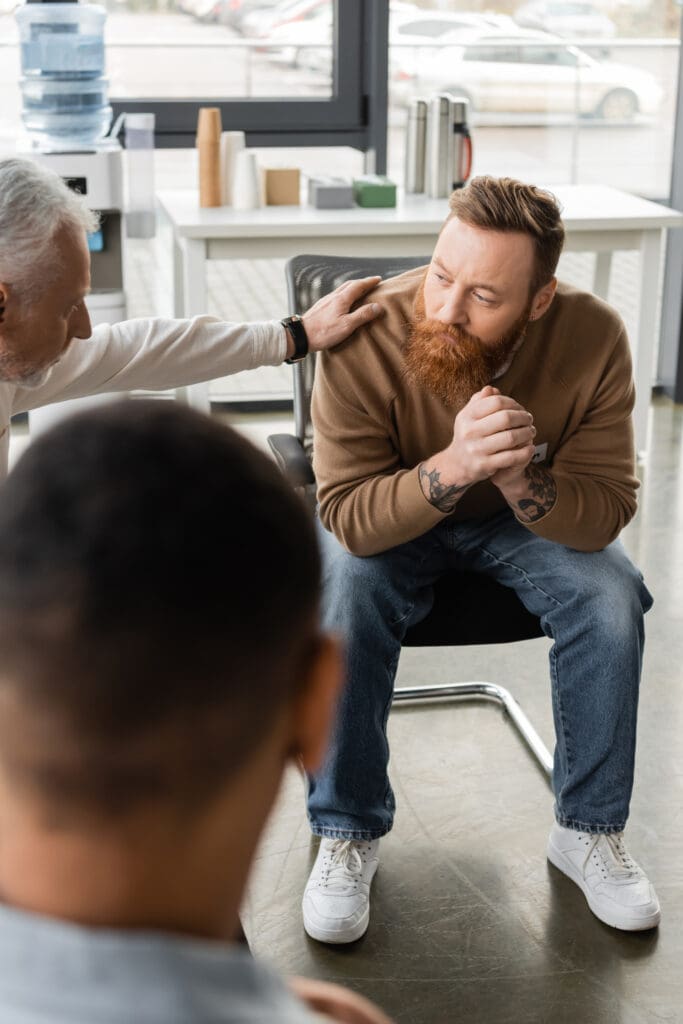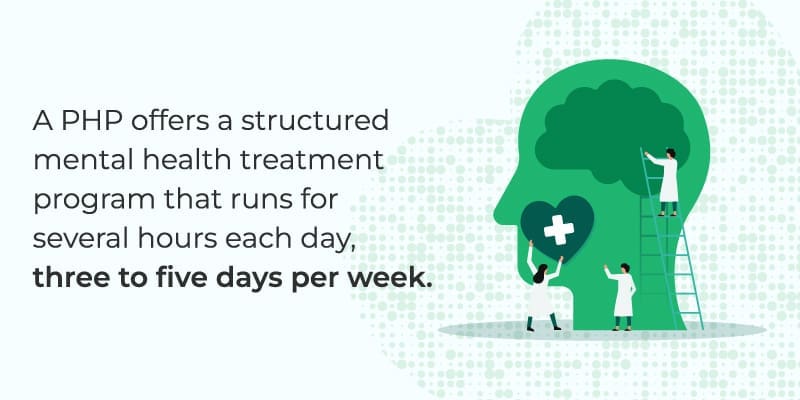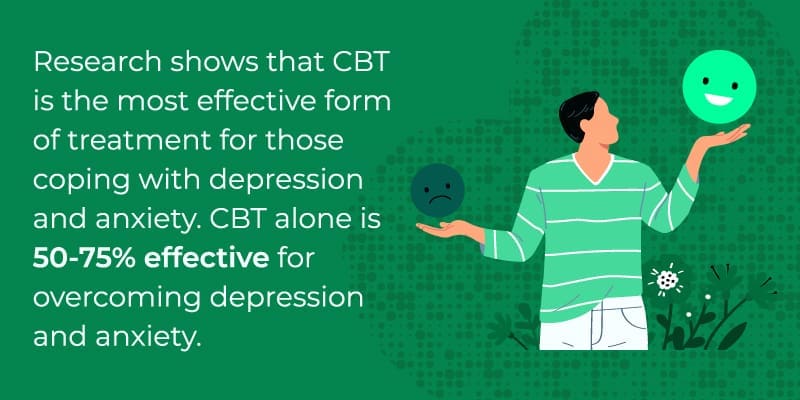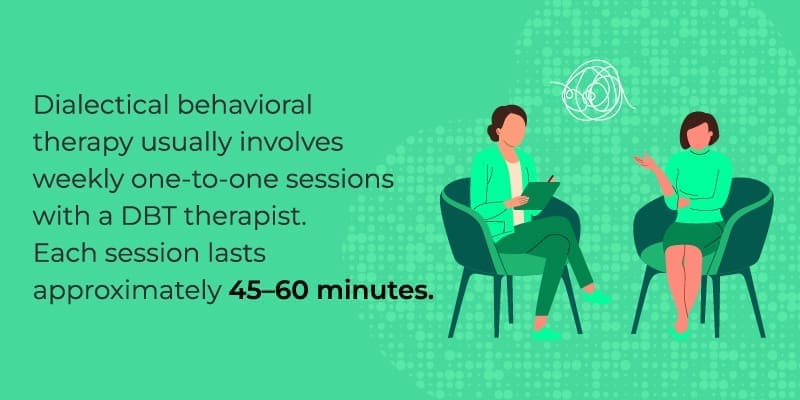Find Lasting Solutions at Our Partial Hospitalization Programs in NJ
- True Life Care Mental Health
- Partial Hospitalization Program
Learn more about the benefits of attending a partial hospitalization program in New Jersey to treat your mental health challenges here.
Get the Benefits of Inpatient without the Stress with a Partial Day Program in NJ
When suffering from mental health disorders, it’s essential to seek help. They can significantly impact your quality of life, relationships, and functioning.
Seeking help from mental health professionals can provide you with the support needed to manage your symptoms. They offer a range of treatments, including a partial hospitalization program (PHP).
But what exactly is this program, and is it effective in treating mental health disorders?

What Exactly is a Partial Hospitalization Program for Mental Health?
A partial hospitalization program (PHP) offers intensive, structured care to patients who need more support but do not need 24-hour hospitalization.
A PHP is typically offered as step down from inpatient hospitalization, however, in certain cases partial hospitalization can replace inpatient care. Partial day programs involve attending treatment sessions several days a week. Treatment in a partial hospitalization program may include a range of therapeutic interventions, such as:1
- Group Therapy
- Individual Therapy
- Family Support & Therapy
- Psychiatric & Medical Care
- Psychoeducation
- Experiential Therapies
A partial hospitalization program (PHP) offers intensive, structured care to patients who need more support but do not need 24-hour hospitalization. A PHP is a step down from inpatient hospitalization. PHPs involve attending treatment sessions several days a week. Treatment in a partial hospitalization program may include a range of therapeutic interventions, such as:1
The Benefits of Attending a PHP Program in NJ
One of the benefits of PHPs is that they provide a structured environment for those struggling with mental health disorders.
They offer a more intensive level of care and are less restrictive than inpatient hospitalization.
What Conditions are Treated at a Partial Day Program?
A partial hospitalization program can treat many conditions. These include mood disorders, anxiety disorders, and substance use disorders.
The structured and intensive nature of PHPs can help individuals develop coping skills, improve their emotional regulation, and build a support network of peers and mental health professionals.
Is a PHP Program Right for Me?
However, a PHP is not suitable for everyone. Individuals with severe mental health conditions may require 24-hour hospitalization.
In contrast, those with mild or moderate conditions may do well in traditional outpatient therapy.
Ready to Take Control of Your Mental Health & Wellness?
Request a 100% Confidential Callback
At True Life Care, we have created a safe space where you can focus on building resilience and managing your mental health challenges in every walk of life.
We offer partial hospitalization that gives you all the benefits of residential treatment without the stay.
Our flexible mental health IOP in NJ offers you personalized mental health treatment.
Outpatient Program
Our outpatient program offers you continued therapy & medication management.
In need of a quality psychiatrist? Let our expert team help you manage medications.
PHPs have a more rigid schedule than IOPs. This can make it more challenging to maintain employment or attend school.
An IOP may offer flexible scheduling options to accommodate your work or school schedules.
Partial hospitalization programs are often more expensive due to the higher level of care and structure provided.
They may be covered by insurance, but individuals may still be responsible for co-pays or out-of-pocket expenses. An IOP may be less expensive but may also provide fewer treatment options.
PHP offers a range of treatment options while IOP may offer a more limited range of treatment options, depending on the specific program.
The choice between a partial hospitalization program and an IOP will depend on the individual’s specific treatment needs and ability to commit.
What is the Difference Between PHP vs. IOP When Seeking Treatment for Mental Health?
Compared to intensive outpatient programs (IOPs), PHPs generally provide higher care and structure. But, this level of care comes at a higher cost.
Below is a comparison of PHP to IOP in terms of flexibility, price, and treatment options.
Insurance can help pay for up to 100% of the cost of treatment
We Work With Most Major Insurance Providers
We can communicate with your insurance provider to assess your needs and benefits. Find the right treatment today.















Who Needs a PHP Program in NJ? Typical Mental Health Conditions Treated at TLC
A partial hospitalization program can be a suitable treatment option for individuals who are experiencing a range of mental health disorders. Some of these disorders are detailed below.
Mood Disorders
A partial day program’s structured and intensive nature can help individuals develop coping skills and learn valuable life skills in the process. It can also improve clients emotional regulation and build a solid support network of peers and mental health professionals.
Anxiety Disorders
Individuals experiencing anxiety and panic disorder may benefit from a partial hospitalization program. A PHP can provide an excellent environment for individuals to work on developing coping skills and managing their symptoms.
Eating Disorders
Those struggling with eating disorders may benefit from a PHP. Disorders include anorexia, bulimia, or binge eating. A PHP can provide a supportive and structured environment for individuals to develop healthier relationships with food and their bodies.
What to Expect from a PHP Program in NJ
Below are some of the typical treatments and activities you can expect in a PHP.
Group therapy is a crucial component of a PHP. Patients will take part in daily group therapy sessions.
These are led by a licensed mental health professional. This provides an environment where patients can share their experiences and learn from others.
A PHP also provides individual therapy sessions with a licensed mental health professional. Individual therapy addresses specific mental health concerns and develops personalized treatment goals.
A PHP will provide medication management from a psychiatrist or other medical professional. The medical team will monitor the patient, adjust dosages, and provide ongoing support.
This involves educational activities designed to help patients understand their mental health condition.
The activities include mindfulness meditation, stress reduction techniques, and cognitive-behavioral therapy.
A Community That Provides Supportive Care in Treatment
A partial hospitalization program provides a supportive environment where patients can connect with peers experiencing similar mental health challenges.
This support network can be valuable for encouragement, motivation, and accountability.
Below are some of the ways supportive care is provided in a PHP.
The staff in a partial hospitalization program are trained mental health professionals. They are available to support and guide the treatment process.
The team will work together to provide a comprehensive treatment approach.
A PHP provides a structured environment to support individuals in their recovery journey. This includes a daily schedule of activities, group therapy sessions, and individual therapy sessions.
The team will work together to provide a comprehensive treatment approach.
A partial hospitalization program may also provide life skills training. This can help you develop practical skills to manage your mental health challenges.
Life skills training may include communication, stress management, and problem-solving techniques.
Can a Partial Hospitalization Program Effectively Treat Mental Health Conditions?
Partial hospitalization programs can effectively treat mental health conditions.
A PHP will provide support and intensive treatment for individuals with mental health challenges. PHP aims to help patients manage their mental health symptoms and reduce symptoms.
PHP offers a range of evidence-based treatments. They address various mental health conditions. This includes depression, anxiety, bipolar disorder, post-traumatic stress disorder (PTSD), and schizophrenia.

When is PHP Utilized in Mental Health Treatment?
PHP are often used as an alternative to inpatient hospitalization. They provide similar levels of intensity and structure without hospitalizing patients. PHP are also more flexible than most treatments. This allows individuals to return home each day after treatment.
Research has shown that PHP can be effective in treating mental health conditions. Studies have found that PHP can reduce symptoms of depression, anxiety, and other mental health conditions.
This will help improve social functioning and increase the quality of life. Partial hospitalization programs are also associated with lower rates of hospitalization and decreased healthcare costs.
Can a Partial Hospitalization Program Help Treat Substance Abuse & Alcoholism?
Yes, partial hospitalization programs can be effective for individuals recovering from addiction. They support individuals in the early stages of addiction recovery.
They may include specialized services for addiction recovery. This includes relapse prevention education, coping skills training, and family therapy.
Individual therapy can also be helpful for individuals recovering from addiction. With individual therapy, you can address specific issues related to your addiction, such as trauma.
What Our Clients are Saying
10 Tips to Get the Most Out of Attending a PHP Program in NJ at True Life Care
Below are ten tips for getting the most out of a partial hospitalization program.
Set personal, achievable goals for your mental health treatment and discuss them with your treatment team. This will help them to tailor your treatment to your individual needs.
Be honest and open with your treatment team about your thoughts, feelings, and experiences. This will help them better understand your needs and provide appropriate treatment.
Participating in group therapy sessions is required. This is done by sharing your experiences and practicing new coping skills.
Keep an open mind and be willing to try new things. Some treatments may seem uncomfortable but can be very helpful in your recovery.
Follow the treatment plan that your treatment team develops for you. This may include medication, therapy, and other activities.
Practice self-care activities such as exercising, getting enough sleep, and eating healthy foods. It is important to remember that self-care is not a luxury; it is a necessity.
Keep a journal to track your progress and reflect on your experiences. This can help you identify patterns and triggers contributing to your mental health challenges.
A Partial Day Program in NJ That Cares About Outcomes
Don’t wait any longer. Our team of caring, supportive treatment coordinators are here to help you begin the journey to long-term healing from mental health conditions with our mental health rehab programs in New Jersey.
24/7 Admissions Line
(973) 791-5314
Send Us a Message
admissions@truelifecarementalhealth.com
Don't Wait Another Day
The Partial Hospitalization Program in New Jersey at True Life Care
True Life Care is a wellness center that offers partial hospitalization programs and structured supported housing. This allows clients to recover in a structured yet comfortable environment.
Our goal is to create a positive recovery environment free of any judgment.
Treatment Opportunities at True Life Care
At True Life Care, we offer a variety of treatment options that can be tailored to meet your needs. These will be detailed below.

A Closer Look at CBT Therapy
Cognitive BehavioralTherapy
CBT focuses on identifying and changing negative or unhelpful thought patterns and behaviors. It is a structured and goal-oriented form of therapy.
CBT is used to treat a range of mental health conditions through a variety of techniques, including:4
- Cognitive restructuring
- Behavioral activation
- Exposure therapy
- Relaxation techniques
CBT is a first-line treatment for mild to moderate depression and anxiety. CBT can be delivered in a one-on-one setting, in a group format, or through self-help materials. These include books or online programs.

A Closer Look at DBT Therapy
Dialectical BehavioralTherapy
Dialectical behavioral therapy (DBT) can treat individuals with borderline personality disorder (BPD). However, it effectively treats depression, anxiety, eating disorders, and substance use disorders.5
DBT is a skills-based therapy. It teaches individuals how to regulate their emotions, tolerate distress, and improve their interpersonal relationships. The treatment consists of four components:
- Individual therapy
- Group skills training
- Phone coaching
- Therapist consultation
The therapy is typically long-term. Individuals may continue to receive treatment for up to a year or more. Research has shown that DBT can help individuals improve their mental health and quality of life.

A Closer Look at EMDR Therapy
Trauma-Informed Therapy
Trauma-focused therapies are designed to treat individuals who have experienced trauma. These therapies aim to help individuals process their traumatic experiences. They can reduce symptoms of post-traumatic stress disorder (PTSD).
Some common types of trauma-focused therapies include:
- Eye Movement Desensitization and Reprocessing (EMDR)
- Cognitive Processing Therapy (CPT)
- Prolonged Exposure Therapy (PE)
- Trauma-Focused Cognitive Behavioral Therapy (TF-CBT)
Get Help at Our Mental Health PHP Program in New Jersey
A partial hospitalization program can treat mental health conditions while providing a supportive and uplifting atmosphere.
This involves the individual in developing their care plan. This empowers patients to make decisions about their treatment. This can help promote a sense of autonomy and control.
True Life Care also incorporates holistic therapies, such as yoga or art therapy. This can help patients feel more relaxed, reduce stress, and improve their well-being.
A positive PHP environment can help individuals feel empowered and motivated to engage in their treatment. This leads to better outcomes and improved mental health.

The Partial Hospitalization Program in New Jersey at True Life Care
True Life Care aims to help individuals feel safe, supported, and motivated to engage in treatment.
At True Life Care, we have compassionate and empathetic staff who are warm, understanding, and supportive. They also provide a collaborative treatment approach.
Taking care of your mental health is crucial to living a healthier, happier life. Reach out to True Life Care today for more information about our partial hospitalization program in New Jersey. We will walk beside you every step of the way on your path to recovery.
- https://www.medicare.gov/coverage/mental-health-care-partial-hospitalization
- https://www.ncbi.nlm.nih.gov/pmc/articles/PMC2848466/
- https://pubmed.ncbi.nlm.nih.gov/3811995/
- https://www.sciencedirect.com/topics/medicine-and-dentistry/cognitive-behavioral-therapy
- https://www.ncbi.nlm.nih.gov/pmc/articles/PMC2963469/








